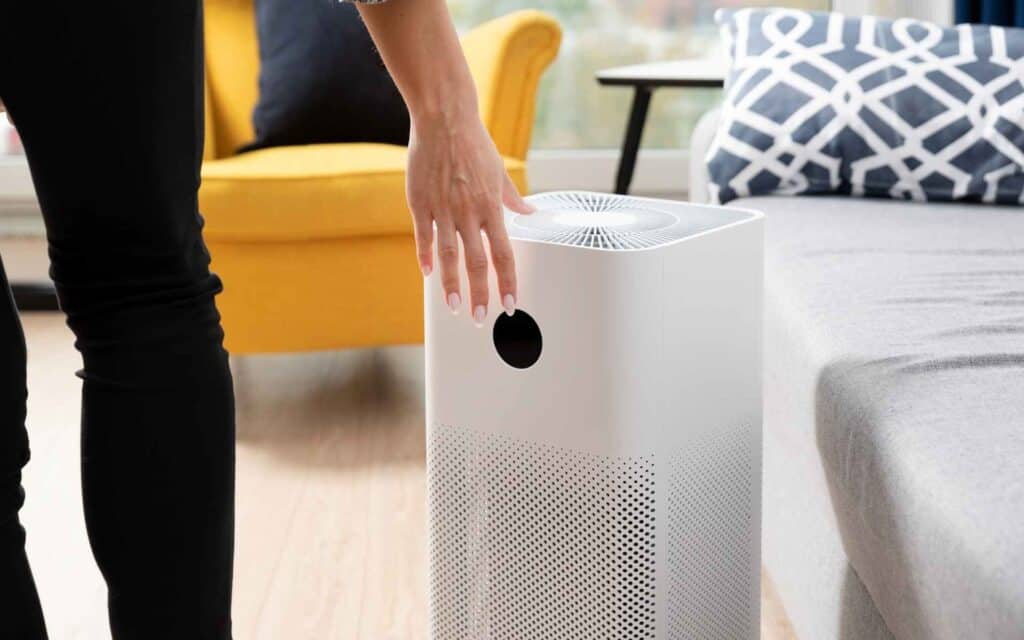Whether it’s pet odors, the mustiness of mold and mildew, smoke, cooking odors, or general odors in the home or office, these smells can linger and affect our overall comfort. This raises the question: Do air purifiers help with smell?
Do Air Purifiers Help With Smell?
Given the nature of these odors, it’s no wonder they can be so difficult to filter from the air. However, air purifiers with certain technologies can help minimize these unpleasant smells.
One of the most common types of air purifiers is equipped with High-Efficiency Particle Air (HEPA) filters.
These filters are designed to capture particles as small as 0.3 microns, including many odor-causing particles.
Buy Air Purifiers at the Best Price Available
Another air purifier that can help with odors combines HEPA filters with UV-C light technology. UV-C light effectively neutralizes certain odors by breaking down the molecular structure of odor-causing particles.
Air purifiers with carbon filters can be effective for particularly stubborn odors. Carbon filters are designed to adsorb odorous molecules, trapping them and preventing them from being released back into the air.
One innovative technology that has gained attention in recent years is Molekule’s photochemical oxidation (PECO) technology.
PECO technology is designed to destroy various pollutants, including volatile organic compounds (VOCs) that contribute to odors.
By breaking down these pollutants at a molecular level, PECO technology can help eliminate odors more effectively.
However, it’s important to note that while air purifiers can combat some odors, not all air purifiers can remove odor.
To effectively address odors, it’s crucial to identify and eliminate the source of the smell. Regular cleaning, proper ventilation, and maintaining a clean living or working environment are essential in preventing odors from recurring issues.
Type of Odor in Home:
Let’s understand what causes common odors.
Airborne chemicals released by various sources typically cause odors. These chemicals can be volatile organic compounds (VOCs), bacteria, mold spores, or other particles that emit a distinct smell.

Now, let’s take a closer look at some of the common sources of bad smells:
Pet Odor: Anyone who owns a pet knows they can leave lingering odors behind. These odors can be persistent, whether it’s the smell of pet dander, urine, or their natural scent.
Mold and Mildew: The musty smell of mold and mildew is a common problem in areas with high humidity or poor ventilation. These fungi release spores that can cause respiratory issues and create an unpleasant odor.
Smoke: Whether it’s from cigarettes, cigars, or cooking, smoke can quickly fill a space and leave behind a strong, unpleasant smell that is difficult to eliminate.
Cooking Odors: The aroma of cooking can be delightful, but certain foods can produce lingering odors that may not be as pleasant. These odors can permeate the air and linger for hours or even days.
General Odors: In addition to the specific sources mentioned above, general odors can also arise in the home or office. These can be caused by factors such as poor ventilation, stagnant air, or the accumulation of dust and debris.